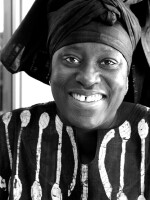ROBERT SIEGEL, host:
In Zimbabwe today, a development that could lead to the end of a political crisis. President Robert Mugabe and opposition leader Morgan Tsvangirai have signed a deal to set the terms for formal talks, and they've agreed to start talking. Those negotiations would be aimed at creating a power-sharing government.
It was the first time in a decade that the two men have met face to face. The recent presidential race between the two involved brutal attacks, largely by Mugabe supporters, and the killings of dozens of people working for the opposition. NPR's Ofeibea Quist-Arcton is following this story and joins us now.
And Ofeibea, what agreement exactly did Mugabe and Tsvangirai sign?
OFEIBEA QUIST-ARCTON: They've agreed to hold formal talks, negotiations that everybody hopes will lead to the end to the crisis in Zimbabwe, and we're talking a post-electoral crisis, we're talking about weeks of violence, we're talking about an economic crisis and a political crisis that have lasted even longer.
The two men, as you said in your introduction, Robert, have finally met. It's been 10 years since Robert Mugabe and Morgan Tsvangirai even sat down to talk, so that in itself is a significant first move, but this is an agreement to hold talks.
SIEGEL: Now, there are words that figure in, news accounts of this agreement, some kind of power-sharing government, talking about an election. Is the idea now that Tsvangirai and Mugabe are supposed to agree to the terms for a new presidential election?
I think it's too early to be able to say any of that, Robert. Nobody is giving those details because of course Morgan Tsvangirai says he won the election. He says that the first round of the election in March, which he won, is what everybody should agree to.
President Robert Mugabe, who went ahead and held a presidential runoff as the sole candidate, says he is the duly re-elected leader of Zimbabwe. So they disagree on that point, and up till now the mediators have been trying to get the two together, but since both says they are the president of Zimbabwe, that hasn't happened.
So these are the sorts of negotiations that are going to take place. We don't know whether there will be a fresh election. We don't know whether there will be agreement to have a transition leading to fresh elections, and we don't know who will head that transition. The next two weeks, I think, will decide what happens in Zimbabwe.
SIEGEL: Ofeibea, talk a little bit about the role of South African President Thabo Mbeki here in brokering this agreement. He had been criticized by supporters of Morgan Tsvangirai for being overly deferential to President Mugabe and to being pro-Mugabe, and yet he seems to have pulled it off.
QUIST-ARCTON: Not on his own. I have to say here that, Robert, the opposition, Morgan Tsvangirai, is very unhappy with Thabo Mbeki as the sole mediator. So the mediation team has been enhanced by a representative from the African Union and also one from the United Nations, Haile Menkerios, and that is what the opposition has been calling for.
So although Thabo Mbeki remains as a chief mediator mandated by the Southern African Development Community, which is the regional community, he is now not deciding things on his own, and I guess this is why the opposition has agreed to these talks.
Many people have said the approach of the South African president, the softly, softly quiet diplomacy with Robert Mugabe for this crisis in Zimbabwe, has been a failure. Yes, elections happened, but look what happened after the elections.
So I think the fact that it's an expanded mediation team can only be more promising for negotiations.
SIEGEL: NPR correspondent Ofeibea Quist-Arcton. Thank you, Ofeibea.
QUIST-ARCTON: Always a pleasure. Transcript provided by NPR, Copyright NPR.







